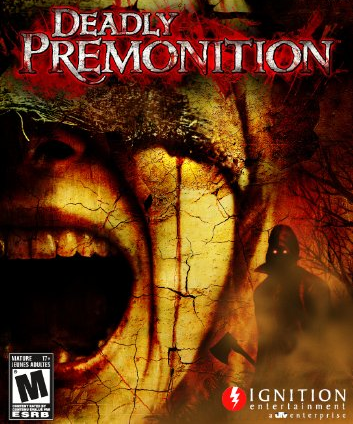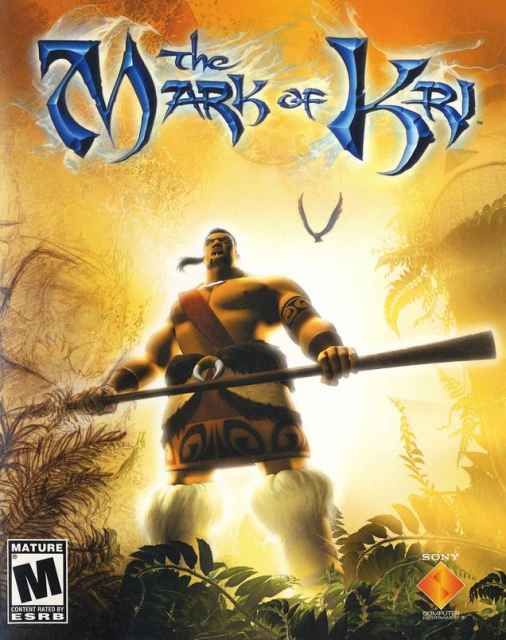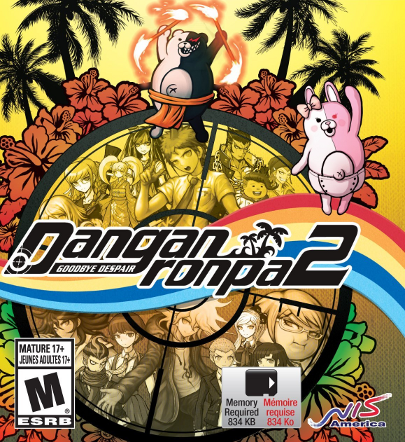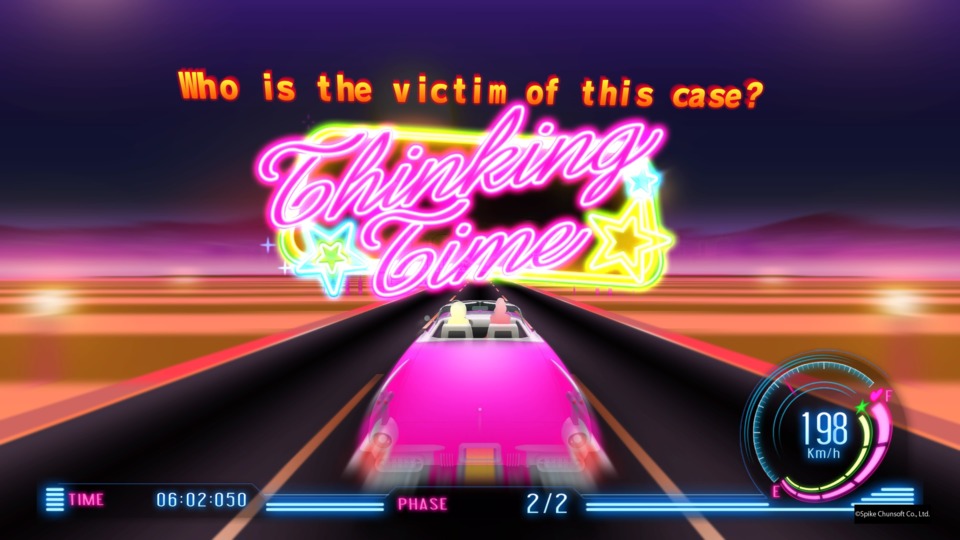We're a week into October now, and it appears I might finally be in with a chance to put together a top ten GOTY list this year thanks to some recent purchases I probably couldn't afford to make, and a few recent bundles and Steam Giveaway successes. My idea right now is to complete at least ten games from this year for a perfunctory list, and then after I'm done polishing off the last few entries to The Top Shelf - which is taking a hiatus this month, because Shelftember almost killed me - I might also put together a "prospective" 2017 GOTY top ten (or twenty). One that, taking in everything I've heard and my own predilections, will prognosticate on what a future "2017 GOTY (Adjusted)" might eventually look like. I almost certainly won't get around to Persona 5, Ys VIII, Yakuza 0, Nier: Automata, Nioh, Tales of Berseria, Xenoblade Chronicles 2 and any number of equally huge JRPGs in the scant few months we have left for 2017, but it might be fun to see if my predicted list lines up with the real thing several years down the road. That is, if we're not all dead by then. (Sorry, trying to be spooky for Halloween. Boo? Year's been scary enough, honestly.)
While we're talking about "Game of the whatevers", my mind went a-wanderin' after a familiar sentiment on the Bomb- and Beastcast regarding Rockstar's Red Dead Redemption with the recent premiere of its sequel's first trailer. That sentiment being that many Giant Bomb staffers consider Red Dead Redemption to be the Game of the Generation - specifically the seventh generation, which includes Xbox 360, PS3 and Wii as well as whatever was on DS, 3DS, PSP, PS Vita and the PC at the time - with notable dissenting opinions from Jeff, who feels as ambivalent about the game as I do, and Vinny, who will champion Mass Effect 2 until the day his adult children "shepard" him into an old folks' home.
On reflection, I really did like most of RDR. The presentation was wonderful and highly referential to its source material, John Marston was a brilliant and nuanced anti-hero, and the open-world exploration led to all kinds of pleasant surprises. Marston's encounters with "The Stranger" made for some really cool existential moments, his relationship with no-nonsense elderly gunslinger Landon Ricketts and various idiots he is forced to co-operate with helped center an already entertaining protagonist, and there's a certain shoot-out that remains one of the best video game moments of recent memory. However, I also recall quite vividly the amount of glitches and issues I suffered through, not all of which were as hilarious as "the cougar-man", the mini-games were awful (except poker, which I could've happily played as its own game), and the (regular) cougars were an ever-present irritation that threatened to completely derail whatever goal you happen to be pursuing when it insta-killed your horse when you least expected it, and I absolutely loathed how the game ended. I'll spoiler block why for obvious reasons: All right, so the homestead stuff was deliberately made to be boring and mundane to suggest that Marston's life had returned to normal, before the cruel twist of his reckoning at the hands of the lawman posse. But it was still tedious. After the shootout, you then get a multi-step mission as his son (who was an unlikable jackass) which generally amounted to three or four instances of "oh, the guy who killed your pa? He's not here, check over there" before you shoot the retired Agent Ross in the back while he's fishing, for a big dramatic title drop splash screen that felt hilariously anti-climactic given the plodding course of events leading up to it post-shootout. Ugh. But still, it's not enough to take the sheen off an otherwise fantastic open-world game with a truly devoted aesthetic.
But is it the best capital-Gs Game of the Generation? I gave it a ponder and was flirting with the idea of making an actual "Games of the Generation" list, but it seemed a bit too grandiose a task for what probably just boils down to a semi-spiteful swipe at a beloved game. Instead, just as a thought exercise, I've made two short lists here that include, respectively, games I liked more than RDR, and games that I like about as much that - were I to make it an actual ranked list - I might place either just above or just below the game depending on how I'm feeling that moment. What follows isn't an exact science, but it should give you an idea of where RDR happens to place in my personal take on the previous generation (which, here, is defined as any game released between 2006-2012 on what was a then-current system).
Seventh-Generation Games I Like More than Red Dead Redemption
Batman: Arkham Asylum, Batman: Arkham City, Burnout Paradise, Castlevania: Order of Ecclesia, Castlevania: Portrait of Ruin, Dragon Age: Origins, Dark Souls, Demon's Souls, Fallout: New Vegas, Just Cause 2, Last Window: The Secret of Cape West, Little King's Story, Mario & Luigi: Bowser's Inside Story, Mass Effect, Mass Effect 2, Osu! Tatakae! Ouendan 2, Radiant Historia, Rayman Origins, Saints Row 2, Sleeping Dogs, Spelunky, Super Mario 3D Land, Super Mario Galaxy, Super Mario Galaxy 2, Uncharted 2: Among Thieves, Tales of Vesperia, Tales of Xillia, Terraria, The Witcher 2: Assassins of Kings, Xenoblade Chronicles, Yakuza 4.
Seventh-Generation Games I Like About as Much as Red Dead Redemption

3D Dot Game Heroes, Amnesia: The Dark Descent, Assassin's Creed II, Assassin's Creed Brotherhood, Binary Domain, BioShock, A Boy and His Blob, Crackdown, Deadly Premonition, Dead Space, Dead Space 2, Deus Ex: Human Revolution, Disaster: Day of Crisis, Dishonored, Dust: An Elysian Tail, Eledees, Elite Beat Agents, Fallout 3, Far Cry 3, Final Fantasy Tactics A2: Grimoire of the Rift, Ghost Trick: Phantom Detective, Hotel Dusk: Room 215, Hotline Miami, The Last Story, The Legend of Zelda: Twilight Princess, The Legend of Zelda: Skyward Sword, Lost Odyssey, Machinarium, Mass Effect 3, Metroid Prime 3: Corruption, Nier, No More Heroes, Pandora's Tower, Portal 2, Ratchet and Clank Future: Tools of Destruction, Ratchet and Clank Future: A Crack in Time, Red Faction: Guerrilla, Saints Row 3, Skyrim, Super Paper Mario, Valkyria Chronicles, Vanquish, VVVVVV, XCOM: Enemy Unknown, Yakuza 3, Zack and Wiki: Quest for Barbaros's Treasure.
So, as a rough estimate, let's just say Red Dead Redemption ranks somewhere between 32nd and 79th for my Game of the Generation. (It's also still my second favorite Rockstar game after Bully, for anyone asking.)
Only one blog this week! I'm using my blog "vacation" time to its utmost, I assure you.
- The Indie Game of the Week was Samorost 3, the latest point-and-click adventure game from the Amanita Design people. At this point, you're either in love with their very specific aesthetic or you aren't, and I doubt Samorost 3 is going to sway people from whichever camp they happen to fall in. Returning to the surreal cosmos of miniature ecosystems and dudes in pajamas that was the setting for Amanita's first game, Samorost 3 has a more musical focus than the rest of their output, and offers a veritable bounty of little optional puzzles to solve on top of the critical path of necessary ones to progress. It's delightful and occasionally inscrutable, and I had a great time with it.
Addenda
My time this week was split between two games other than Samorost 3: The Mark of Kri, a PS2 game that I hacked my way through for the sake of The Top Shelf, and Danganronpa 2: Goodbye Despair, which I finally returned to and completed this week after starting it at the end of August.
The Mark of Kri

SIE San Diego Studio's 2002 debut The Mark of Kri turned out to be a huge disappointment. Not in the sense that I had a lot of expectations for the game going in that it failed to deliver on, but in the way it built up its strengths after the early tutorial-focused levels only to completely squander them for its ordeal of a final showdown. Let's walk that back a few steps first, though.
As I described in its Shelftember entry, The Mark of Kri is a character-action game that is not unlike a proto-God of War, with a presentation that is part Moana (the game is couched in Polynesian/Pacific Islander lore with a wonderful animated aesthetic courtesy of some former Disney animators) and part Conan the Barbarian (the game is told from a future standpoint, specifically from the protagonist Rau's "chronicler", and speaks to how the godlike Rau was still in his salad days here. It's also violent as hell). Its gameplay is initially very combat-focused, with a special melee system that temporarily maps face buttons to nearby opponents to allow the player to easily attack specific foes when surrounded. However, the second mission introduces stealth - by putting his sword away, Rau can quietly sneak up and instantly kill unaware opponents, but is vulnerable if spotted - and the third introduces the bow, which is necessary for removing archers in elevated positions and for quietly taking out unarmored opponents in large groups before Rau announces himself to the much more manageable group in a conventional "run in swinging" manner. The stealth and the bow add some welcome strategic layers to the game, as Rau's non-regenerating health and limited capacity to save means that you have to be conservative about getting into too many out-and-out group melees. That's particularly true of enemies carrying horns, who will warn all enemies in the region of Rau's presence if not silenced first. These aspects are bolstered by the mechanics surrounding Rau's avian partner, Kuzo, who can fly ahead to various marked perches and get the lay of the land, identifying enemies and their patrol routes before Rau gets close via a system where the player sees through Kuzo's eyes.
However, the last mission of the game gives Rau a new weapon - an axe, which does a huge amount of damage but is fairly slow - and has him fight endless waves of zombies on the way to the antagonist. There's no more stealth, and the bow is only used to take out already hostile archers before they can pepper Rau with arrows - in this case all you can do is quickly pull out the bow, take down all the archers from their nests, and put it away before the various zombies on the ground can hack you to pieces. The zombies, on their part, constantly rise from the ground and frequently ambush you after you mistakenly believe that the first twenty or so were all that existed in a given room, rather than in previous stages where you always knew exactly how many enemies to expect through your scouting and keen observation. It's an unpleasant, frustrating slog of a final mission that completely misses the point of the game's appeal and its methodical pace. Hence the disappointment.
It's actually because of that awful final mission that I'm eliminating the game from The Top Shelf. The bar to pass at this point is so high that it's not even worth adding The Mark of Kri to the Reserves List to battle for a spot, but it did at least teach me a very important lesson: If I'm going to consider any game for The Top Shelf, I should play it all the way through to the very end to ensure there's no nasty surprises waiting for me. It's the equivalent of getting 80% the way through a delicious apple only to find a worm. Or half of one, God forbid.
Danganronpa 2: Goodbye Despair

For a while, I wasn't sure how I felt about the Danganronpa games. They have some very strong pros and some equally strong cons. It wasn't until I realized that one Patrick Klepek, back when he was still our newshound instead of Waypoint's or Kotaku's, had reviewed the two games that I was able to resolve my own thoughts on the franchise. They are absolutely three-star games, as Patrick identified them, as they have these wonderful convoluted plots and eccentric characters and fantastic localized dialogue, all of which is let down by this insistence to make the game "more interactive" than other visual novels with some truly obnoxious mini-games and trial-and-error inputs.
The Danganronpa games, to the uninitiated, present a scenario wherein a group of highschool students - each with an "Ultimate" talent, such as photography, cookery or gymnastics - are trapped in a location together by a diabolical mastermind masquerading as a loathsome little black and white bear named Monokuma. The way for someone to escape their confinement, Monokuma tells them, is to kill one of your fellow classmates. However, the survivors have a chance to unmask the killer in a class trial where everyone participates and votes on who they believe to be the perpetrator: if they succeed in unanimously voting for the killer, that person is executed in a particularly flamboyant method that's germane to their talent. If the trial fails, the killer gets to leave while everyone else is executed in their place. Obviously, to avoid the early game overs, it's imperative you get to the bottom of each murder mystery and find the true culprit during the class trial. The game splits itself up between long stretches of story, which you simply read your way through like any other visual novel, "free time" where the player can develop their relationship with an alive student of their choice by talking to them and giving them gifts, the investigation phase which occurs right after a murder where the player has to gather all the necessary clues, and the climactic class trial itself.
The class trials are built like the Ace Attorney trials, where the player has to find the contradiction in someone's testimony or theory and seize upon it, often invoking the piece of evidence that refutes it. However, this can take many forms, and this is where the game's unfortunate focus on mini-games comes into play. If anything, Danganronpa 2 doubles down on this aspect over its predecessor, giving you even more mini-games to play, none of which are particularly appealing and really just serve to get in the way of your sleuthing and the story. In particular, it "enhances" a mini-game called Hangman's Gambit where you put together an important clue one letter at a time as they whizz across the screen to make it even more frustrating, and adds one called Logic Drive which operates similarly to a 3D tunnel runner in the vein of Sonic the Hedgehog 2's bonus stages. At certain points during Logic Drive, you have to answer a multiple choice question, and at the end you learn an important bit of information for the case. It's all fairly arbitrary stuff, though, as there are also regular multiple-choice questions you have to answer correctly to proceed. Add to this a problem that the Danganronpa series managed to import wholesale from Ace Attorney, where you have several possible approaches to a solution (in a "this piece of evidence contradicts this statement" sense) where only one is "correct". Patrick's assessment was that, while he enjoyed the games, he didn't really see the point of them being games: the twist-filled stories and clever, joke-laden script were easily the best parts, so why not just make it an anime and be done with it? Or, at the very least, stick to traditional adventure game puzzles to draw conclusions instead of couching them in these bizarre and superfluous mini-games.
Anyway, I still think these games are worth playing. There's nothing really like the manic energy and absurd humor they exhibit, though Ace Attorney and the Zero Escape games get close, and it's worth suffering through their weaker aspects to consume the completely insane narratives at their core. It's safe to say the games frequently emphasize the wrong aspects - the achievements, for instance, require you to play the game several times and run everywhere instead of using the fast travel mini-map, and lots of other busywork that I wasn't prepared to waste my time on - but its intrinsic lunacy is worth sticking around for, especially if you're a fan of something like Persona with which it shares many thematic and stylistic similarities. Danganronpa 2 definitely exemplifies the dichotomy of "yay, fun story/boo, terrible mini-games" more than even the first game. Jury's going to be out on Danganronpa V3 until I get to play it, though.
That's your lot for this week. Next week, I begin Torment: Tides of Numenera, get further with a few more PS2 games, and introduce another Indie Game of the Week. I'll also be updating this list of spooky games, since the Super Best Friends Shitstorm of Scariness has one again re-emerged from its troubled slumber, so check in for some horror game suggestions if you're cruisin' for a spookin'. See you next time.


Log in to comment